Richard Keith Call (1792-1862) participated in an era of American history defined by Indian Removal and the expansion of plantation slavery.
His mother, Helen Walker Call, moved with her children and the enslaved people she owned from Kentucky to Virginia following the death of her husband, William Call, in 1800. Her son Richard read law and later enrolled in the Mount Pleasant Academy in northern Tennessee. Her Kentucky relatives included US Senator George Walker and Congressman David Walker.
In 1813, Richard Keith Call volunteered to serve in Andrew Jackson’s army against the Creek Indians in Alabama and Georgia during the Red Stick War (1813-14). He later participated in the Battles of Pensacola and New Orleans (1814-15).
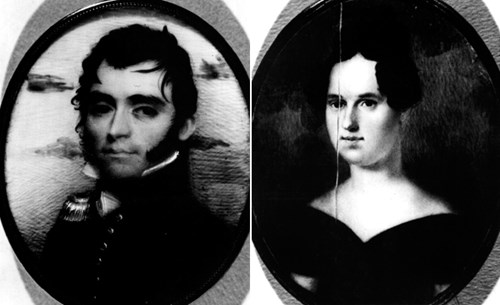
Miniature Portraits of Richard Keith Call and Mary Kirkman Call, ca. 1824. Images courtesy of Jane Aurell Menton.
Call served on General Jackson's personal staff during the First Seminole War (1817-18) and the acquisition of Florida from Spain (1819-21). During this period, he resided off and on at the Hermitage and served in the army in the Cherokee country. By 1823, he lived in Pensacola and was elected to represent Florida in congress from 1823 to 1825.
In 1824, Richard Keith Call married Mary Letitia Kirkman (1802-36) at The Hermitage, near Nashville, Tennessee. Shortly thereafter, the Calls and ten enslaved people relocated to Tallahassee. In 1825, the Calls purchased The Grove property, which originally contained 640 acres, situated just north of Tallahassee in township 1 north, range 1 west.
In the 1820s and 1830s, Call served as receiver in the federal land office, leveraged his position to acquire parcels throughout north Florida, and, as an attorney, represented the US government in Supreme Court cases involving disputed Spanish land grants.
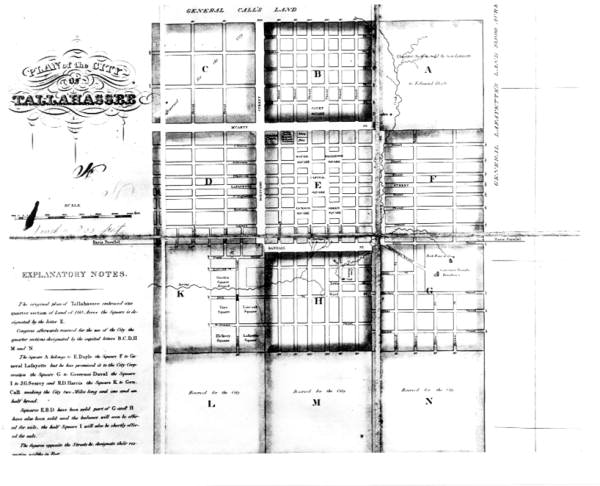
A Plan of the City of Tallahassee, ca. 1829. Image courtesy of the State Archives of Florida.
From his arrival to Tallahassee until the time of his death, Call purchased and exploited the labor of skilled enslaved people to run his brickyard, railroad, and land development operations. In the 1830s and 1840s, enslaved peopled owned by Call and his partners developed the Port of St. Marks, Port Leon, the Tallahassee-St. Marks Railroad, and plantations at Orchard Pond and Lake Jackson, north of Tallahassee.
He served two terms as Florida's territorial governor (1836-39 and 1841-44). When he died in 1862, Call willed 197 enslaved people to his surviving daughters.
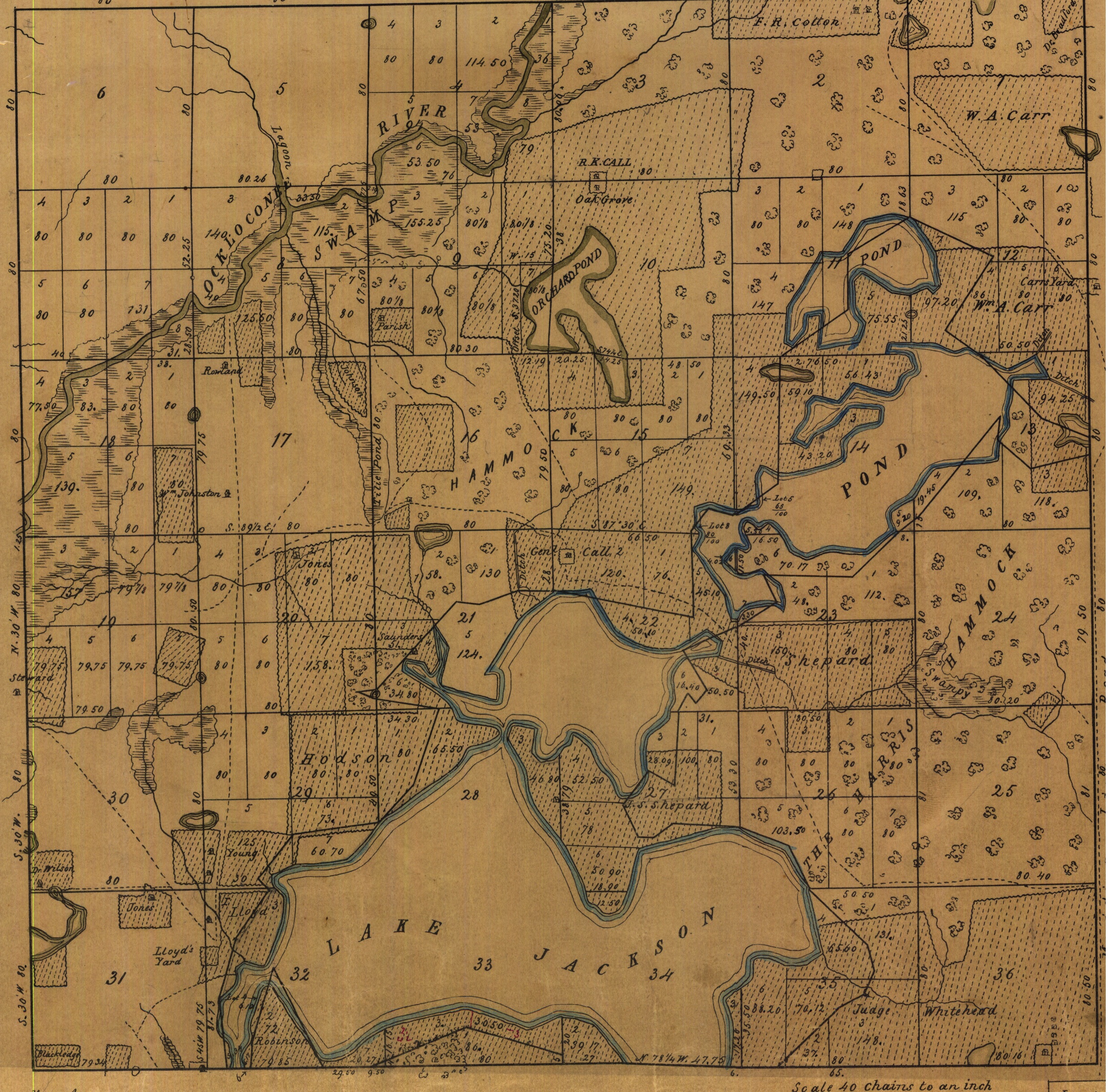
Plat of township 2 north, range 1 west, showing Call's Lake Jackson and Orchard Pond plantations in 1853. Image courtesy of the State Archives of Florida.
Between 1832 and 1834, four Call children succumbed to disease and, in 1836, Mary Kirkman Call died. Of six Call children born between 1825 and 1835, only Ellen Call Long (1825-1905) and Mary Call Brevard (1835-1920) survived into adulthood.
In the mid-to-late 1830s, enslaved craftspeople started construction on a two-story masonry residence, located in the southeastern quadrant of Call’s property at The Grove. These enslaved craftspeople completed the house in about 1840.
Call deeded the house, 190 acres, and seven enslaved people to daughter Ellen Call Long in 1851, who resided on the property until her death in 1905. Today, the ca. 1840 masonry residence is known as the Call-Collins House.
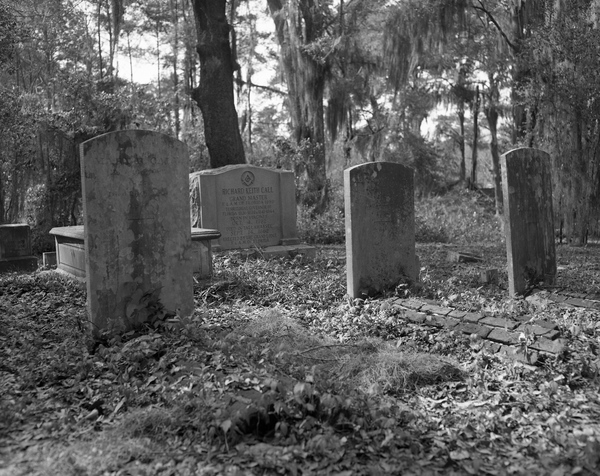
Family Cemetery at The Grove, 1957. Photo courtesy of the State Archives of Florida.
Call emerged as a vocal opponent of secession during the sectional crisis of the 1850s and early 1860s. On January 10, 1861, delegates from Florida’s secession convention walked from the State Capitol to The Grove to taunt Call after they had voted to secede.
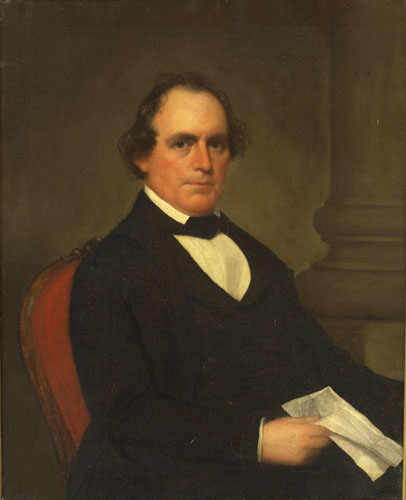
Portrait of Richard Keith Call commissioned by his great-granddaughter Mary Call Collins in the late 1950s.
When members of the secession delegation arrived at the steps of the home, Call reportedly confronted them and thundered that they had “opened the gates of hell,” which would “sink [them] to perdition!”
As the Civil War raged on, Call died at The Grove on September 14, 1862.
Visitor Parking:
902 N. Monroe Street, Tallahassee, FL 32303
Wednesday, Thursday, and Friday: House tours on the hour, 1, 2 and 3 p.m.
Saturday: House tours on the hour, 10, 11 a.m., Noon, 1, 2 and 3 p.m.
Closed Sunday, Monday, and Tuesday
Group Tours: Tours for groups of ten (10) or more are available at $1.00 per guest. For group tours, please contact the museum in advance to make arrangements.
Grounds open Wednesday to Saturday, 10 a.m. to 4 p.m.